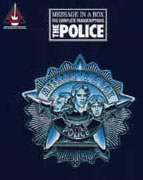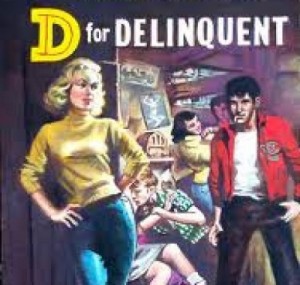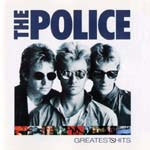pdf: end of music as we know it
Unpublished leaflet from the mid-80s:
“There isn’t much difference between rock ‘n’ roll and teaching, mind you. It’s the same job. You’re entertaining delinquents for an hour.”
– Sting, ex-teacher.
Whether The Police strut the stage, the classroom or the picket line, authority – keeping anger repressed “for an hour” or for several years – is the eternal catchy tune you can’t shake out of your head. In the music commodity-spectacle, the rock industry, The Po-lice disguise themselves in snazzy gear instead of the usual dark blue: in order to “entertain”, authority disguises itself as “fun” and is accepted as such by those spectators who fear stealing their pleasures out of the buried treasure box of their own initiatives. The spectators regard freedom as the freedom to surrender to the authority of any spectacle they desire – and the more anti-authoritarian the content of this authority, this monologue, this show, the more they regard the ‘freedom’ to consume and perform rebel images as an essential freedom. One of the main reasons why people consider it absurd to define the present intensification of State power and survival misery as ‘fascist’ is not merely the fact that vast varieties of political forms of free pseudo-expression are permitted to parade themselves on the global stage, but also because, on the level of culture and of daily life, endless freedoms of appearance are developing, endless ‘freedoms’ within the production and consumption of images and roles are flourishing.
Everywhere, cultural ‘critiques’ of the dominant world, everywhere ‘radical’ novelties fill the market with the appearance of constant change, everywhere spectacular rebellion, thriving on the surface, dressing up the horror, painting over the isolation, filling the emptiness with jingles.
The Wall On The Screen Guarantees The Walls In Your Life
For Capital, it’s fine that kids buy records which chant, “We don’t want no education, we don’t want no thought control”. But, of course, the spectacle is not meant to be taken literally, but consumed at a distance, which is why, when they act such phrases out, by burning down some of the walls (of schools, even), throwing some of the bricks and refusing ‘thought control’, it’s not just Capital’s most overt representatives (politicians, screws, social workers, etc.) who rush to patch up the holes. That the film of the song of the actually lived reality, “Pink Floyd’s The Wall”, presents the riots as macho, racist and fascist-inspired, even to the point of subtly suggesting a comparison between the anti-hierarchical violence of the riots and the hierarchical violence of World War II, shows how the more sophisticated purveyors of culture are shit-scared of any real and direct attacks on the walls of the prison. They only articulate the rebellions and frustrations of their possible consumers in order to preserve their lucrative niche; a niche threatened by any genuine rebellion from those whose consumption habits they are financially and socially dependent on. When the film first went on release, Top Shop in London’s shopping concentration camp, Brent X, advertised school uniforms placed on sexy plastic models who stood in front of a polystyrene brick wall with the words “We don’t want no education” on it. The blatant nature of this contradiction reveals in a crude form the contradictions of all spectacular pseudo-rebellion, ‘rebellion’ which tolerates the commodity system whose misery engenders rebellion. Disgust with this world (in this case, school, the conditioning factory which prepares kids for the boredom-inducing sacrifices of the commodity system) is used to sell commodities (school uniforms) which can only reinforce this disgust. Such hypocrisy, already clear in the mouths of political gangsters who claim to be champions of “liberty” or “communism”, is the inevitable product of all those who believe that rebellion and revolt is compatible with acceptance of the hierarchical organisation of life which degrades individuality and community wherever the world market reigns.
But the contradictions of being insulted by mere rebel images all too often explode into reality: like the kids who tore up the cinema seats in the fifties after watching Presley’s “Jailhouse Rock”. Or the Italian youths who refused to be simply an audience when Lou Reed performed in 1976 wearing a swastika on his T-shirt: the celebrater of blasé decadence got bombarded with nuts and bolts, his instruments getting smashed. Or the Leftist rock stars who held a concert in the South of France under the title “Rock Contre les Flics” (Rock against the cops) and were surprised that a section of the audience took the title of the concert literally and, having refused to pay, attacked the cops and forced the concert to come to an early finish. Perhaps we shall soon see blacks, no longer complicit with the hypocrisies of Rastafarianism, taking the records of the dead millionaire supporter of Social Democrtic State repression, Bob Marley, seriously – by looting and burning them. How many bouncers have we got to cross before we get to meet the rock star? If the music of breaking record-shops be the food of love, play on!
“There isn’t much difference between rock ‘n’ roll and teaching, mind you. It’s the same job. You’re entertaining delinquents for an hour.”
– Sting, ex-teacher.
 The Police Comeback Tour (video)
The Police Comeback Tour (video)
 Hits as of 7/8/17:
Hits as of 7/8/17:
1499

Leave a Reply